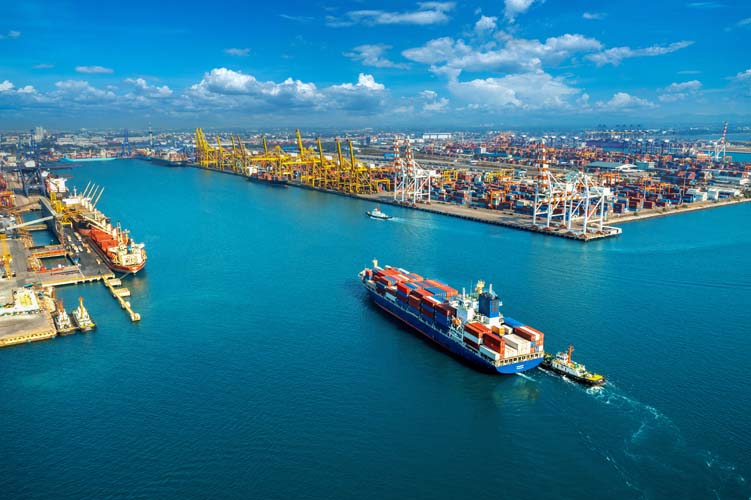Last Updated on 28/11/2023
Recently, Turkey has emerged as a significant player in the global export industry. Its strategic location bridging Europe and Asia, coupled with a robust manufacturing sector, has positioned the country as an attractive hub for international trade. In this article, we will delve into the thriving export business in Turkey. Besides, we will explore the key factors contributing to its success.
Turkey’s Strategic Location ensuring diverse export opportunities

Turkey’s geographical location at the crossroads of Europe and Asia has long been an important advantage for its export business. In fact, the country serves as a bridge, making it a pivotal point for trade routes. Therefore, this strategic positioning allows businesses in Turkey to easily access markets in both Eastern and Western regions. And this makes it an ideal base for international trade.
Moreover, one of the primary drivers of Turkey’s booming export business is its diverse range of exportable goods and services. The country is a major exporter of textiles, machinery, automotive components, electronics, and a variety of agricultural products. Consequently, Turkish manufacturers have a global reputation for producing high-quality goods, making them sought-after in international markets.
Furthermore, Turkey has invested heavily in its logistics and infrastructure, with world-class ports, airports, and transportation networks. Thus, this investment has enhanced the country’s ability to move goods efficiently, reducing transportation costs and increasing the competitiveness of Turkish exports.
Custom Trade Agreements and Diversification
Turkey’s Customs Union agreement with the European Union (EU) has been a game-changer for its export industry. This agreement allows Turkish products to enter EU markets with reduced or zero tariffs, making Turkish goods highly competitive in European markets. As a result, Turkey has become a significant supplier to the EU, further fueling its export growth.
Moreover, Turkey has entered into numerous trade agreements with countries worldwide, reducing trade barriers and opening up new markets for Turkish exporters. These agreements have encouraged diversification in the types of products and services that Turkey exports, making the export business more resilient and adaptable to changing global market dynamics.
Export Incentives and Government Support:
The Turkish government has implemented various policies and incentives to encourage and support the export business. Exporters can benefit from financial incentives, grants, and subsidies, which help reduce their production costs and improve their competitiveness in international markets. The government also offers support in terms of market research, trade missions, and export credit insurance.
read more about What is the best place to invest in Turkey
Thriving Small and Medium-Sized Enterprises (SMEs):

Small and medium-sized enterprises (SMEs) play a crucial role in Turkey’s export sector. These businesses are often specialized in niche markets and products, contributing significantly to the country’s diverse export portfolio. The government provides targeted support to SMEs, fostering their growth and participation in global trade. Furthermore, Turkey’s export businesses have embraced digital transformation and e-commerce, expanding their reach to global customers. The rise of online marketplaces has made it easier for Turkish companies to connect with international buyers, promoting their products and services worldwide.
Challenges and Opportunities
While Turkey’s export business continues to grow, it does face challenges. Global economic fluctuations, geopolitical tensions, and currency exchange rates can impact the industry. However, the adaptability and resilience of Turkish exporters enable them to navigate these challenges and seize opportunities for growth.
read more about Outlook of Turkish Economy for 2023 and beyond
Turkey’s export business has come a long way, transforming into a robust and diverse sector with significant global influence. Its strategic location, diverse export offerings, customs union with the EU, government support, and a thriving SME sector all contribute to its success. As Turkey continues to adapt to changing global dynamics and explores new markets, it remains a shining example of a nation with a thriving export business at the crossroads of Europe and Asia. With its strong foundation and dynamic outlook, the future of Turkey’s export industry is promising.




